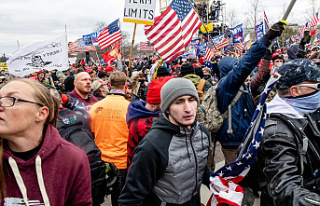WASHINGTON -- Michael Flynn, the House committee investigating Thursday's Jan. 6 attack at the Capitol, appeared before the House investigation in response to a subpoena requesting him to testify on an Oval Office meeting during which, the panel stated that then-President Donald Trump discussed seizing voting machine, according to several sources familiar with the matter.
Flynn didn't answer questions from the committee. He was exercising his Fifth Amendment rights on counsel's advice, according to David Warrington, Flynn's lead attorney.
In November, the committee wrote to Flynn requesting that he testify regarding the meeting of December 18, 2020. The letter stated that participants had discussed declaring a national crisis. According to the letter, the plan was part the attempt to spread the false message about the fraudulent presidential election of March.
The seven-member committee is composed of two Republicans and two Democrats. It is currently conducting an extensive investigation into all aspects surrounding the attack on the Capitol and attempts to overturn President Joe Biden’s victory.
Flynn's testimony proves to be valuable because he participated in a meeting that discussed measures that could have undermined the integrity of the election. Post-election audits have proven that there wasn't widespread fraud that could have revoked Biden's victory.
Flynn had also spoken to Newsmax TV on the previous day, in which he discussed the "purported precedent", invoking martial laws and sending troops to "rerun", the letter stated. Flynn, a former lieutenant general, briefly served as Trump’s national security advisor in 2017.
Warrington stated that Flynn was deposed by the committee and that staff members "insinuated" Flynn was guilty of not answering questions. Warrington said that this suggestion "conflicts" with almost 250 years of American law and shows a disturbing denial of the vital Constitutional right's meaning and existence.
Flynn had sued committee in December to block the subpoena. He also wanted documents. Flynn filed the suit in Florida federal court. The lawsuit stated that Flynn could be irreparably and illegally forced to produce testimony and information in violation of the law.
The judge denied Flynn’s motion to block the subpoena.












